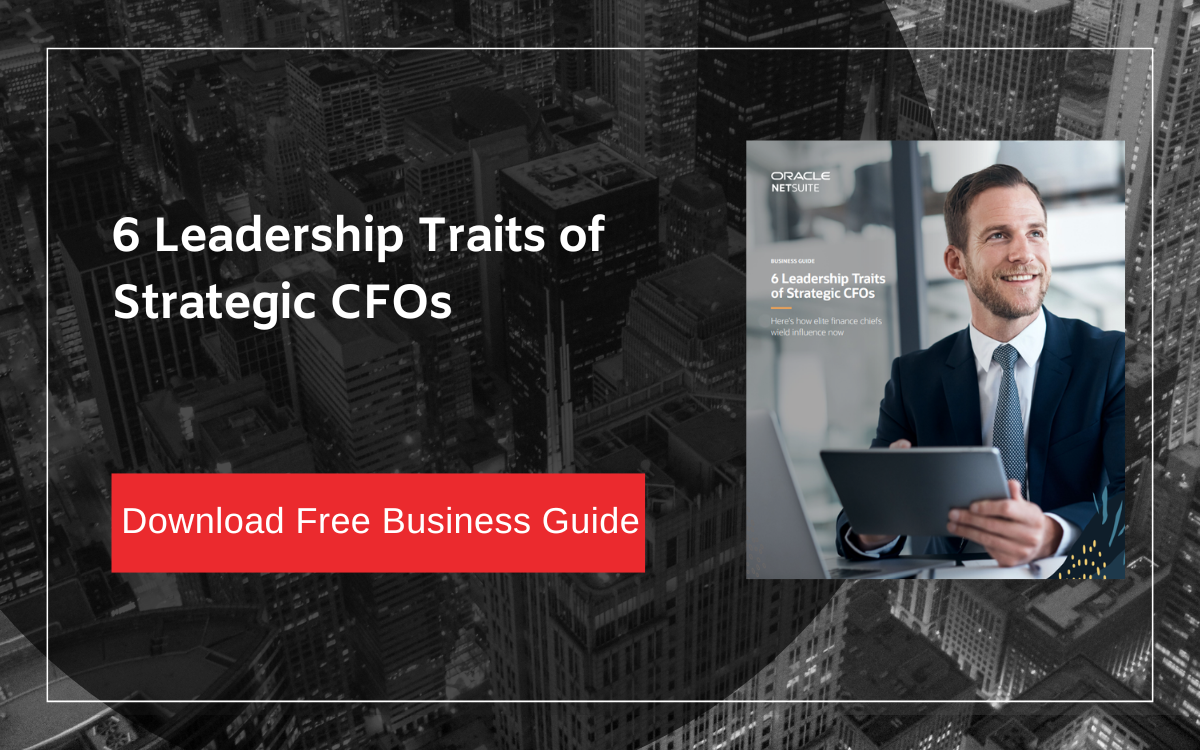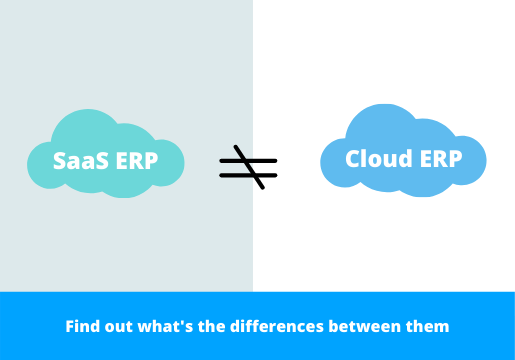In a time when business environments change rapidly, future CFOs must move beyond conventional financial management. As we approach 2025, here is how the six essential qualities of strategic CFOs are evolving and what leaders must do to get ready.
Technology Vision Gets Smarter
The data shows that 84% of CFOs are already increasing their involvement in technology strategy – but by 2025, this will be table stakes. Tomorrow's CFOs must master AI integration, predictive analytics, and automation while maintaining a cohesive technology ecosystem.
Watch for:
- AI-driven financial forecasting and risk assessment will revolutionise the way CFOs predict and manage future financial outcomes. By leveraging advanced algorithms and machine learning, these systems can analyse vast amounts of data to provide more accurate and timely forecasts, enabling CFOs to anticipate market trends and potential risks with unprecedented precision.
- Integrated technology ecosystems that eliminate data silos will become essential, as they allow seamless data flow across various departments, ensuring that all stakeholders have access to consistent and comprehensive information. This integration will facilitate more informed decision-making and foster collaboration across the organisation.
- Automation of routine financial processes at scale will free up valuable time and resources, allowing finance teams to focus on strategic initiatives rather than mundane tasks. By automating tasks such as invoicing, payroll, and financial reporting, organisations can increase efficiency and reduce the likelihood of human error.
- Real-time analytics capabilities for instant decision-making will empower CFOs to respond swiftly to changing market conditions. With access to up-to-the-minute data insights, they can make informed decisions on the fly, optimising financial performance and driving business growth.
Cybersecurity Becomes Mission-Critical
With cyber threats growing more sophisticated, 2025's CFOs will need to move beyond basic security measures. Already, 35% of CFOs rank cybersecurity among their highest concerns.
Prepare for:
- Advanced threat detection systems will become indispensable tools for CFOs, enabling them to identify and neutralise potential cyber threats before they can cause harm. These systems utilise sophisticated algorithms and machine learning to continuously monitor network activity, detect anomalies, and respond to threats in real-time, ensuring the organisation's digital assets remain secure.
- Zero-trust security architectures will redefine how organisations approach cybersecurity by eliminating the traditional notion of trust within a network. This model requires strict identity verification for every person and device attempting to access resources, regardless of whether they are inside or outside the network perimeter. By implementing zero-trust principles, CFOs can significantly reduce the risk of data breaches and unauthorised access.
- AI-powered security protocols will enhance the ability of organisations to protect sensitive information by leveraging artificial intelligence to predict, detect, and respond to cyber threats. These protocols can analyse vast amounts of data to identify patterns and potential vulnerabilities, allowing for proactive measures to be taken to safeguard the organisation's digital infrastructure.
- Comprehensive cyber insurance strategies will become a critical component of risk management for CFOs, providing financial protection against the potentially devastating costs of cyber incidents. These strategies will involve not only purchasing insurance policies but also implementing robust cybersecurity measures to minimise risk and ensure compliance with policy requirements. By doing so, CFOs can mitigate the financial impact of cyberattacks and ensure business continuity.
The Great Talent Revolution
By 2025, the workforce will be more diverse, remote, and tech-savvy than ever.
Strategic CFOs must lead the charge in:
- Building hybrid workforce models that balance automation with human expertise will be crucial for organisations aiming to optimise productivity and innovation. This involves creating a seamless integration of advanced technologies and human skills, ensuring that automated systems handle repetitive tasks while human employees focus on strategic, creative, and complex problem-solving activities. By doing so, companies can enhance efficiency and foster a more dynamic work environment that leverages the strengths of both technology and human intellect.
- Developing new compensation frameworks for global teams is essential in recognising the diverse contributions of a geographically dispersed workforce. These frameworks must account for varying economic conditions, cost of living differences, and cultural expectations across regions. By implementing equitable and competitive compensation strategies, organisations can attract and retain top talent worldwide, ensuring that all employees feel valued and motivated regardless of their location.
- Creating upskilling programs for finance professionals is vital in equipping them with the necessary skills to navigate the rapidly evolving financial landscape. These programs should focus on enhancing digital literacy, data analysis capabilities, and strategic thinking, enabling finance teams to adapt to new technologies and methodologies. By investing in continuous learning and development, organisations can ensure their finance professionals remain at the forefront of industry advancements and are prepared to tackle future challenges.
- Measuring and improving employee engagement through data analytics involves leveraging sophisticated tools to gather insights into workforce sentiment and performance. By analysing data on employee interactions, feedback, and productivity, organisations can identify areas for improvement and implement targeted strategies to boost engagement. This data-driven approach allows for personalised interventions that address specific needs, ultimately leading to a more motivated and committed workforce that drives organisational success.
Fundraising in the Digital Age
The traditional fundraising playbook is being rewritten.
Tomorrow's CFOs need to master:
- Digital investor relations platforms are becoming indispensable tools for CFOs, enabling seamless communication and engagement with investors through digital channels. These platforms offer a comprehensive suite of features, including virtual meetings, interactive reports, and real-time updates, allowing CFOs to maintain transparency and build trust with stakeholders. By leveraging these platforms, organisations can enhance their investor relations strategy, ensuring that investors are well-informed and engaged with the company's financial performance and strategic direction.
- Real-time performance dashboards provide CFOs with instant access to critical financial data and key performance indicators, allowing for swift analysis and decision-making. These dashboards integrate data from various sources, offering a holistic view of the organisation's financial health and operational efficiency. By utilising real-time insights, CFOs can identify trends, monitor progress against targets, and make informed decisions that drive business growth and optimise financial outcomes.
- Sustainable finance metrics are increasingly important as organisations strive to align their financial strategies with environmental, social, and governance (ESG) goals. These metrics provide a framework for measuring and reporting on the sustainability of financial activities, helping CFOs to assess the impact of their decisions on the environment and society. By incorporating sustainable finance metrics into their reporting, CFOs can demonstrate their commitment to responsible business practices and attract investors who prioritise sustainability.
- Data-driven storytelling for investor engagement involves using data analytics to craft compelling narratives that resonate with investors. By transforming complex financial data into clear, engaging stories, CFOs can effectively communicate the organisation's value proposition and strategic vision. This approach not only enhances investor understanding but also fosters stronger relationships by highlighting the company's achievements, growth potential, and commitment to long-term success. Through data-driven storytelling, CFOs can captivate their audience and secure the support needed to achieve their financial objectives.
Communication Goes High-Tech
By 2025, strategic communication will require more than just good presentation skills.
CFOs must embrace:
- Augmented reality financial presentations will revolutionise the way financial data is communicated, offering immersive and interactive experiences that bring complex financial information to life. By overlaying digital information onto the physical world, these presentations allow stakeholders to visualise data in three dimensions, making it easier to understand trends, patterns, and projections. This innovative approach not only enhances comprehension but also engages audiences more effectively, fostering deeper insights and discussions.
- Real-time data visualisation tools are set to become indispensable for CFOs, providing dynamic and interactive representations of financial data that can be updated instantaneously. These tools enable finance leaders to monitor key performance indicators and financial metrics as they change, allowing for quick analysis and informed decision-making. By presenting data in visually compelling formats, these tools help to simplify complex information, making it accessible to a wider audience and facilitating more strategic discussions.
- Personalised stakeholder communications will be crucial in building and maintaining strong relationships with investors, partners, and other key stakeholders. By tailoring messages to the specific interests and needs of each audience, CFOs can ensure that their communications are relevant and impactful. This personalised approach not only enhances engagement but also builds trust and loyalty, as stakeholders feel valued and understood.
- Multi-channel engagement strategies will be essential for reaching diverse audiences across various platforms and communication channels. By leveraging a mix of digital and traditional media, CFOs can ensure that their messages are delivered effectively and consistently, regardless of the medium. This approach allows for greater flexibility and reach, enabling finance leaders to connect with stakeholders in the ways that are most convenient and meaningful to them. Through strategic use of multiple channels, organisations can enhance their communication efforts and strengthen their overall stakeholder relationships.
Strategic Planning Reimagined
The most significant shift by 2025 will be in how CFOs approach strategic planning.
Expect to focus on:
- Scenario planning using AI and machine learning will become a cornerstone of strategic planning, allowing CFOs to simulate various future scenarios with remarkable accuracy. By harnessing the power of AI, organisations can analyse vast datasets to predict potential outcomes and assess the impact of different strategic decisions. This advanced approach enables finance leaders to prepare for a range of possibilities, ensuring that they are equipped to navigate uncertainties and seize opportunities as they arise.
- Real-time strategy adjustments based on market signals will be crucial for maintaining a competitive edge in a rapidly changing business environment. By continuously monitoring market trends and signals, CFOs can swiftly adapt their strategies to align with current conditions. This agility allows organisations to respond proactively to shifts in consumer behaviour, economic fluctuations, and industry developments, ensuring that they remain relevant and resilient in the face of change.
- Integration of ESG metrics into strategic planning will be essential as organisations increasingly prioritise sustainability and social responsibility. By incorporating environmental, social, and governance (ESG) considerations into their strategic frameworks, CFOs can ensure that their financial strategies align with broader societal goals. This integration not only enhances the organisation's reputation and stakeholder trust but also positions it to capitalise on emerging opportunities in the growing market for sustainable business practices.
- Predictive modeling for risk assessment will revolutionise the way CFOs identify and manage potential risks. By leveraging sophisticated algorithms and data analytics, these models can forecast potential threats and vulnerabilities with unprecedented precision. This proactive approach enables finance leaders to implement effective risk mitigation strategies, safeguarding the organisation's assets and ensuring long-term stability. Through predictive modeling, CFOs can transform risk management from a reactive process into a strategic advantage, driving informed decision-making and fostering organisational resilience.
The Road Ahead
As we approach 2025, the role of CFO will continue its transformation from financial guardian to strategic business partner. Success will require a delicate balance of technical expertise, strategic vision, and leadership ability.
Jack McCullough's observation that "CFOs used to record history; now they make history" will be even more relevant in 2025. The winners will be those who embrace these changes while maintaining the fundamental strengths that have always defined great financial leadership.
Remember: The future belongs to CFOs who can combine traditional financial acumen with new technologies and strategic insight. Start building these capabilities now to ensure you're ready for the challenges and opportunities that lie ahead.
This transformation is not merely about adjusting to change – it's about spearheading it. The CFOs who will excel in 2025 are those who perceive these shifts not as obstacles to surmount, but as opportunities to innovate and add value in novel ways.
Consider this your guide for cultivating the skills and capabilities that will characterise effective finance leadership in 2025 and beyond. The future is swiftly approaching – and it belongs to those who prepare for it today.
Download the free business guide below for full information!





